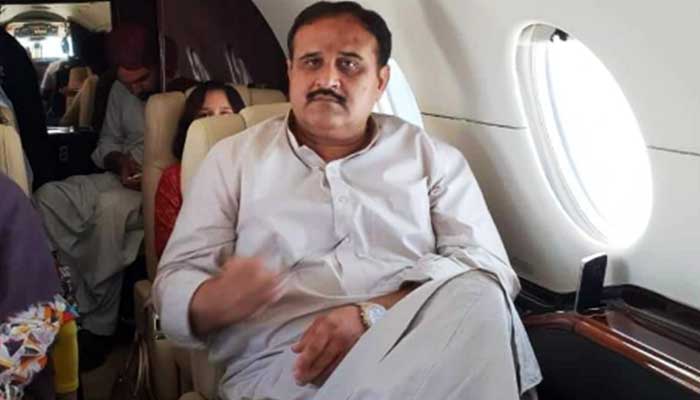Charity begins at home: Rulers secured, masses ignored
ISLAMABAD: Each of the five former chief ministers of Punjab will get for lifetime at least 16 personnel of the government in addition to three official vehicles under the bill just passed by the provincial assembly.
Moreover, an adequate “government maintained” house will be provided to the ex-chief ministers for life in Lahore if they don’t own residences in the Punjab capital. A condition is that such a figure should have held the office of the chief minister for a minimum of six months.
Meanwhile, the bill provides for use of airport VIP lounges by sitting and former members of the Punjab Assembly (MPAs). They have also been made entitled to official passports. Duly elected former chief ministers will also be issued diplomatic passports. Additionally, former MPAs will get free indoor and outdoor medical facilities of the same standards available to the sitting legislators.
In the meantime, the Punjab Public Representatives’ Laws (Amendment) Act, 2019, bestows phenomenal raise in the salaries of Punjab advisers, special assistants and parliamentary secretaries.
At the moment, there are six ex-chief ministers-- Nawaz Sharif, Shahbaz Sharif, Chaudhry Pervaiz Elahi, Dost Muhammad Khosa Ghulam Mustafa Khar and Manzoor Wattoo. However, none will be entitled to the government maintained residence in Lahore as all of them have their own houses there. When the incumbent chief minister, Usman Buzdar, will leave the position, he will get such house.
He has already crossed the minimum limit of six months in office. The original bill introduced in the Punjab assembly, which is available on its website, doesn’t contain any clause relating to the provision of official residence to former chief ministers. It was inserted in the draft during its consideration in the standing committee on finance. Thus, this clause is Buzdar-specific.
Section 21-A was added to the Punjab Chief Minister (Salaries, Allowances and Privileges) Act, 1975, to incorporate the perks and privileges made available to ex-chief ministers.
The former caretaker chief ministers are not covered by this amendment because they were not elected by the MPAs as required under Article 130 of the Constitution.
Section 21-A says every person, who has held the office of the Chief Minister under Article 130 shall, for life time, be entitled to suitable and adequate security, including provision of close protection services with two SUVs of engine capacity not less than 2,500cc with five security personnel in each vehicle, excluding driver, which the Government shall make available; one personal secretary and two junior clerks to be arranged by the government; a 1,300cc car with driver maintained at the expense of the government; and payment of Rs10,000 per month as telephone allowance.
According to an amendment in the Punjab Parliamentary Secretaries (Salary, Allowances and Privileges) Ordinance, 2002, every parliamentary secretary will get a salary of Rs83,000 instead of the previous amount of Rs20,000; sumptuary allowance of Rs22,000 in place of Rs10,000; Rs35,000 as petrol and car maintenance allowance instead of Rs20,000; house rent of Rs50,000 in place of Rs20,000 (if official residence is not available); Rs12,000 rather than Rs6,000 as gas and electricity charges for his residence; 35,000 in place of Rs25,000 per diem for the period of residence on duty for session of the assembly or meeting of a committee; Rs200,000 for travel within Pakistan rather than Rs100,000 per annum; daily allowance of Rs2,000 in place of Rs1,000 for tour; and Rs20,000 instead of Rs10,000 for office maintenance per month.
Two new sections [15-A and 15-C] were added to the Provincial Assembly of the Punjab Privileges Act, 1972, (II of 1972) which say and every sitting and former MPA shall be entitled to the use of VIP lounges at all airports in Pakistan and will be given official passport. Every person who has held the office of the speaker and deputy speaker, duly elected under Article 108 or the office of a Minister under Article 132 of the Constitution, shall also be entitled to official passport. Every person who has held the office of the Chief Minister under Article 130 shall be entitled to diplomatic passport.
Similarly, every special assistant will receive Rs185,000 as monthly salary instead of Rs35,000, and another allowance of Rs15,000 in place of Rs4,000. Every adviser will get Rs185,000 as monthly pay in place of Rs30,000.
There are thirty-eight parliamentary secretaries in Punjab, three advisers, five special assistants to the chief minister and thirty-five ministers.
Apart from the raise in the salaries, perks and privileges of 371 Punjab MPAs, a similar increase has been introduced in the pays and other facilities of the chief minister, ministers, speaker and deputy speaker.
The statement of objects and reasons attached with the bill said that the emoluments of public representatives of Punjab are not on par with those of the sister provinces and the federal government. Keeping in view the recent spells of price hike and devaluation, it is essential that their emoluments are increased to a reasonable extent, it said.
The extraordinary increase “extremely disappointed” Prime Minister Imran Khan, who was especially dissatisfied with Chief Minister Usman Buzdar. The information ministers of the federal and Punjab governments changed their stance from defending the raise in the first instance to opposing it after the premier discounted it.
Interestingly, the five movers of the bill included two MPAs each of the Pakistan Tehreek-e-Insaf (PTI) – Ghazanfar Abbas elected from PP-91 Bhakkar and Aamir Inayat Shahani elected from PP-92 Bhakkar and Pakistan Muslim League-Nawaz (PML-N) Agha Ali Haider elected from PP-134 Nankana Sahib and Shoaib Owaisi elected from PP-252 Bahawalpur and one lawmaker belonging to the Pakistan People’s Party (PPP)--Usman Mehmood elected from PP-264 Rahim Yar Khan.
An official told The News that the bill was sent to Governor Chaudhry Sarwar for enactment immediately after its approval by the Punjab assembly. If any changes are to be made in it after the emergence of protesting voices from highest official quarters or it is to be scrapped altogether, it has to go back to the legislature because the assembly is the only competent forum to do so.
-
 Harry Styles Opens Up About Isolation After One Direction Split
Harry Styles Opens Up About Isolation After One Direction Split -
 Shamed Andrew Was ‘face To Face’ With Epstein Files, Mocked For Lying
Shamed Andrew Was ‘face To Face’ With Epstein Files, Mocked For Lying -
 Kanye West Projected To Explode Music Charts With 'Bully' After He Apologized Over Antisemitism
Kanye West Projected To Explode Music Charts With 'Bully' After He Apologized Over Antisemitism -
 Leighton Meester Reflects On How Valentine’s Day Feels Like Now
Leighton Meester Reflects On How Valentine’s Day Feels Like Now -
 Sarah Ferguson ‘won’t Let Go Without A Fight’ After Royal Exile
Sarah Ferguson ‘won’t Let Go Without A Fight’ After Royal Exile -
 Adam Sandler Makes Brutal Confession: 'I Do Not Love Comedy First'
Adam Sandler Makes Brutal Confession: 'I Do Not Love Comedy First' -
 'Harry Potter' Star Rupert Grint Shares Where He Stands Politically
'Harry Potter' Star Rupert Grint Shares Where He Stands Politically -
 Drama Outside Nancy Guthrie's Home Unfolds Described As 'circus'
Drama Outside Nancy Guthrie's Home Unfolds Described As 'circus' -
 Marco Rubio Sends Message Of Unity To Europe
Marco Rubio Sends Message Of Unity To Europe -
 Savannah's Interview With Epstein Victim, Who Sued UK's Andrew, Surfaces Amid Guthrie Abduction
Savannah's Interview With Epstein Victim, Who Sued UK's Andrew, Surfaces Amid Guthrie Abduction -
 Piers Morgan Supports Bad Bunny As US Lawmakers Seek Action
Piers Morgan Supports Bad Bunny As US Lawmakers Seek Action -
 Jennifer Love Hewitt Reminisces About Workign With Betty White
Jennifer Love Hewitt Reminisces About Workign With Betty White -
 Hilarie Burton Reveals Valentine's Day Plans With Jeffrey Dean Morgan
Hilarie Burton Reveals Valentine's Day Plans With Jeffrey Dean Morgan -
 Harry Styles Silently Deleted Instagram App
Harry Styles Silently Deleted Instagram App -
 Cardi B Compares Her Fall To Government At Las Vegas Show
Cardi B Compares Her Fall To Government At Las Vegas Show -
 Harry Styles Reveals Biggest Lesson Learnt During Music Hiatus
Harry Styles Reveals Biggest Lesson Learnt During Music Hiatus




